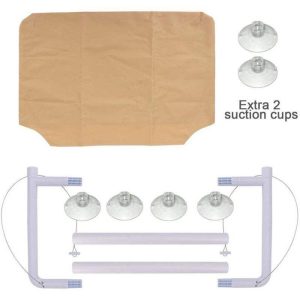Which foods are not safe for Beagles to eat?

Beagles, as an energetic and lively breed, possess a strong curiosity about food. If owners are not vigilant during daily feeding, it’s easy for them to accidentally ingest harmful substances, posing a threat to their health. Understanding dietary restrictions is crucial for safeguarding their well-being.
I. Fruits: Not All Sweet Fruits Are Safe
Many owners feed fruits as treats to Beagles, unaware that certain components in some fruits can harm them. Grapes and raisins are prime examples—even small amounts can cause acute kidney failure, with symptoms including vomiting, diarrhea, and lethargy. Without prompt treatment, this can become life-threatening within a short period.
Avocados also pose risks. The persin toxin they contain adversely affects Beagles’ digestive and respiratory systems, potentially causing vomiting, diarrhea, and severe cases may lead to breathing difficulties. Additionally, cherry pits contain cyanide. If ingested by dogs, cyanide accumulates in their bodies, disrupting oxygen transport in the blood and causing poisoning symptoms like breathing difficulties and convulsions.
II. Vegetables: Hidden Dangers in Common Produce
Onions and garlic, common staples on the dinner table, are flavor enhancers for humans but highly dangerous for dogs. The sulfides in these vegetables can damage the structure of Beagles’ red blood cells, causing them to rupture and leading to hemolytic anemia. Symptoms include dark urine, pale gums, and decreased energy. Long-term ingestion can cause permanent damage to the liver and kidneys.
Potatoes produce solanine when sprouting. If consumed by Beagles, it can cause nausea, vomiting, and abdominal pain. In severe cases, it may affect the nervous system, leading to seizures and coma. Therefore, owners should store these hazardous vegetables securely during preparation to prevent canine access.
III. Snacks and Seasonings: Human Treats as “Hidden Killers”
Chocolate, a common household snack, contains theobromine, which poses significant risks to a Beagle’s heart and nervous system. Theobromine metabolizes slowly in Beagles, and excessive intake can cause rapid heartbeat, muscle tremors, seizures, and even death. The higher the chocolate’s cocoa content, the greater the danger.
Caffeine found in beverages like coffee and tea acts similarly to theobromine, stimulating the Beagle’s central nervous system and causing excitement, insomnia, and breathing difficulties. Furthermore, long-term excessive intake of seasonings such as salt and soy sauce can overload the Beagle’s kidneys, leading to hypertension, kidney disease, and other health issues that shorten their lifespan.
The healthy development of Beagles relies on scientifically sound dietary management. Owners must remember these dietary restrictions, carefully select foods in daily feeding, and avoid causing harm through momentary oversight. If accidental ingestion of hazardous foods is discovered, promptly take the dog to a veterinary hospital for treatment to minimize damage.
admin
-
Sale!

Washable Pet Cooling Pad for Cats and Dogs
$10.99Original price was: $10.99.$9.99Current price is: $9.99. This product has multiple variants. The options may be chosen on the product page -
Sale!

Washable Cat Window Hammock Cooling Bed
$23.99Original price was: $23.99.$22.99Current price is: $22.99. -
Sale!

Tropical Amphibian Rainforest Tank, Lizard Cage
$38.99Original price was: $38.99.$36.99Current price is: $36.99. -
Sale!

Silent 4-in-1 Waterproof Charging Dog Hair Trimmer
$49.88Original price was: $49.88.$47.99Current price is: $47.99.